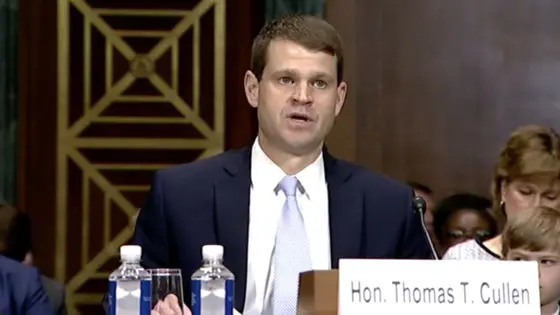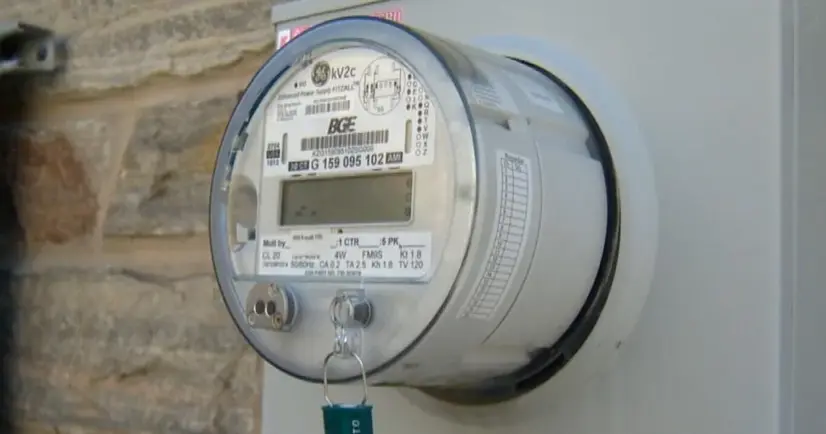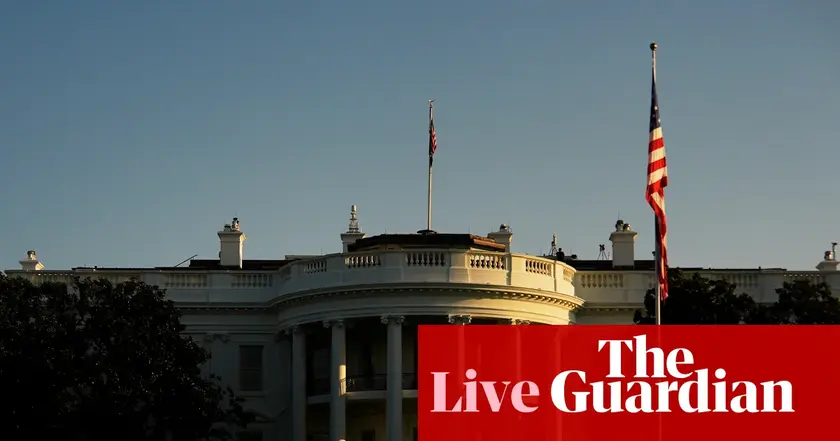T4K3.news
Judicial power under strain in Maryland clash
A federal judge questions the DOJ bid to sue Maryland’s 15 federal judges over a detainee removal rule

A federal judge questions the Justice Department’s bid to sue Maryland’s 15 federal judges in a case testing limits on the judiciary during the Trump era.
Judicial Power Under Strain as DOJ Sues Maryland Judges
In Baltimore, a federal judge pressed the Justice Department on its bid to sue all of Maryland’s federal district judges. The lawsuit seeks to challenge a court rule that temporarily blocks the administration from moving immigration detainees before they can challenge their removal in court. The matter folds into a larger clash between the Trump administration and federal courts over due process in immigration enforcement. The 15 judges named in the suit are not present in the courtroom, as they are recused from the matter, and the defense has hired Paul Clement, a well known conservative lawyer, to argue its position. Judge Thomas Cullen, appointed by Trump in 2020, signaled skepticism about the government’s strategy, saying, “I don’t have a very good poker face” and “I have some skepticism.”
The Justice Department argues the case is limited in scope and would not unleash a wave of similar suits against the judiciary. It faces a steep challenge to justify suing sitting judges and to rebut the idea that the action bypasses established channels for challenging court orders. The defendants counter that the executive branch has invoked judicial immunity too broadly and that the suit would set a dangerous precedent if successful. The hearing also featured a friend of the court brief from 11 former federal judges warning that allowing this suit to stand could weaken judicial authority and disrupt the balance between branches of government. The judge overseeing the immigration case suggested an interlocutory appeal to the Supreme Court might be a faster route, noting that the high court has acted quickly on emergency matters when needed.
Key Takeaways
"I don’t have a very good poker face"
Judge Thomas Cullen expressing skepticism during the hearing
"There really is no precursor for this suit"
Paul Clement describing the novelty of the DOJ action
"This is taking it up about six notches"
Cullen commenting on the scale of the legal challenge
"There’s just nothing like this kind of injunction against the judicial branch"
Clement arguing against the idea of injunctive suits against courts
This clash sits at the edge of a broader fight over control and accountability in government. On one side, the DOJ argues it must be able to push back when it contends courts slow or obstruct immigration enforcement. On the other, judges warn that letting the executive sue the judiciary could erode the independence of courts and invite more clashes across circuits. The case tests not just a rule about detainee removals, but a question about how far the executive branch can go when its actions collide with judicial orders. The dynamics matter beyond Maryland. If the administration can pursue a broad legal attack on judges, it could reshape how courts police executive power and how much deference judges receive in hot political disputes. The hearing captured a moment of tension that could ripple through federal courts nationwide.
Beyond procedure, the dispute highlights a perennial worry: will the system protect due process when politics outruns policy? The magistrate’s instinct to probe the strategy signals the judiciary’s desire to preserve its space from executive overreach, while the DOJ’s insistence on a limited, one off remedy hints at a broader appetite to test boundaries under the guise of immunity. How this plays out could set a standard for future conflicts between branches and influence public confidence in the rule of law.
Highlights
- This is taking it up about six notches
- There’s nothing like this against the judicial branch
- If they can do this at the district court level they could do this at the Circuit
- This is not opening the floodgates
Legal and political risk around executive vs judiciary powers
The case tests limits on executive power to challenge court orders and could affect judicial independence and public confidence in the courts. If the suit gains traction, it may prompt broader political backlash and more high profile litigation.
The outcome will shape how aggressively government branches can challenge court oversight.
Enjoyed this? Let your friends know!
Related News

Meloni criticizes EU ruling on asylum seekers

Judge pauses Kilmar Abrego Garcia’s release from custody

Appeals court overturns contempt finding in Venezuelan removals case

Court blocks DEI guidance in school policy

BGE ends conservation call after substation repairs

Judge denies request to release Kilmar Abrego Garcia

Judge blocks ICE from detaining Kilmar Abrego Garcia

DC police takeover faces federal lawsuit
